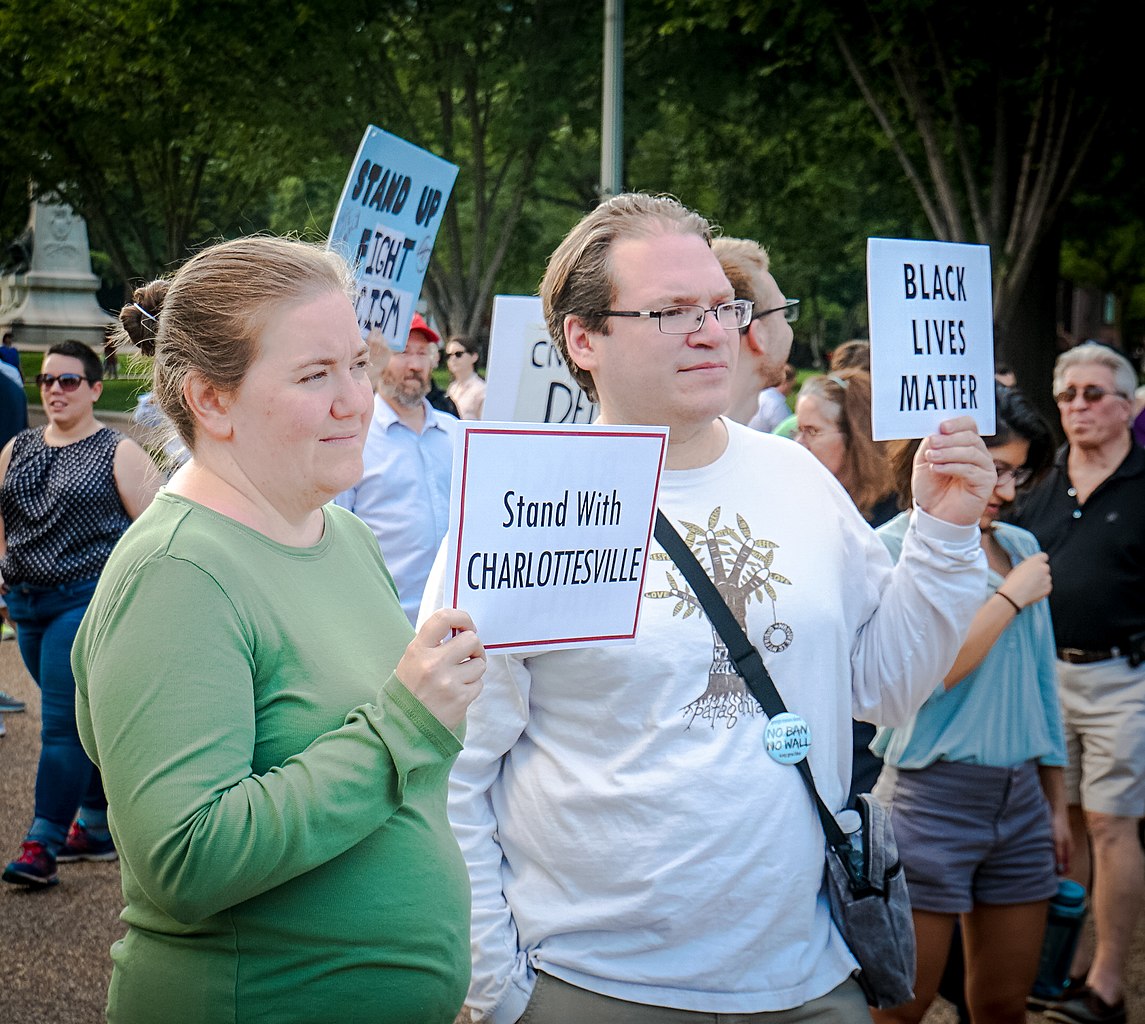Views expressed in opinion columns are the author’s own.
What does it mean to be white? Is whiteness simply a measure of skin color, or is it based on the institutional privileges advantaged to white people? Can these two things ever be separated, or can other identities mitigate white privilege? As a white Jew in Trump’s America, I find these questions increasingly salient.
The “Unite the Right” rally in Charlottesville, Virginia, in August was supposedly about protecting a statue of Robert E. Lee; however, marchers chanted “Jews will not replace us” and carried Nazi symbols. In the white supremacist vision of America, Jews are not included in the ethnically pure white race meant to have power. This means Jews are among the many minority groups that face oppression and prejudice in America.
On the other hand, Jewish people are well-integrated into American society, and largely do not face the institutional racism that oppresses racial minorities. Jewish people hold the privilege that can be afforded to even a religious minority based on the whiteness of their skin.
So what does this paradox mean? Jews are able to climb the social ladder without the hurdles other minorities must overcome, but they are hated by segments of society and, according to FBI crime data, most religion-based hate crimes in 2015 targeted Jewish people.
I never used to think my religion made me unsafe. Now I have been forced to recognize that many people do not think I belong in America, and they wish to do me physical harm because of my faith. I now understand that these individuals view me separately from white Christians.
This reveals how our intersecting identities interact, alter the way others view us and control our relative levels of societal privilege. Since my physical appearance is of a white person, I likely won’t have to face housing or employment discrimination, but, at the same time, I have to be cognizant of the people who wish me harm for practicing my faith.
This paradox of identities is not limited to Jews. A gay or bisexual man will have male privilege yet still face persecution for his sexual orientation. A white person of low socioeconomic status can rely on white privilege yet won’t have the same opportunities as a wealthier individual.
Many of us have identities targeted for oppression, and we must recognize how these identities shape the way we are treated in society.
Feeling both the benefits of privilege and the pain of prejudice gives me only limited understanding of the discrimination and oppression racial minorities face, but it does help me gain a newfound appreciation for those struggles. It encourages me to recognize my many privileged and oppressed identities, and be an ally to those who also have oppressed identities.
We all must recognize that our society was built to benefit certain identity groups and oppress others. Once we become aware of this truth, we must seek to help everyone, not just those who are like us. In the wise words of Martin Luther King Jr., “Injustice anywhere is a threat to justice everywhere.”
Instead of finding more ways to separate ourselves, we should be seeking to join hands against all forms of hate. Nowhere is this more true than on a diverse campus like ours.
We must first recognize each other’s struggles. White nationalist posters have been appearing across the campus, undocumented students may face deportation now that Deferred Action for Childhood Arrivals is coming to an end, many students don’t have access to proper food and black Bowie State University student Richard Collins was killed on this university’s campus.
Upon recognizing that many of us are the victims of oppression in some form, we must strive to lift each other up and work together in the pursuit of social justice. Only by working side-by-side can all of us — the oppressed, the privileged and everyone in between — create truly lasting change on our campus and beyond.
Mitchell Rock is a senior government and politics and physiology and neurobiology major. He can be reached at mrock13@umd.edu.



